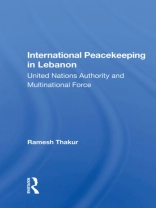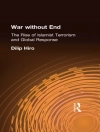Examining the efficacy of U.N. peace efforts, Dr. Ramesh Thakur compares limited peacekeeping through U.N. authority with more coercive means such as the Multinational Force (MNF) in Lebanon. He finds that the role of the U.S.-led MNF coalition cannot be justified in terms of great-power responsibility for ensuring a stable international order, since the coalition has attempted to substitute military power for authoritative peacekeeping. When MNF legitimacy was questioned and authority was challenged, the MNF’s use of force in response to those challenges switched the coalition’s role from third-party peacekeeper to factional participant. As a result, every successive attempt to strengthen the MNF mandate has further subordinated the concept of neutral international peacekeeping to calculated support of national interests. If reasoned attempts to keep the peace are not to collapse into exercises in national self-interest, then peacekeeping responsibilities must remain with the U.N., supported by the great powers: Only the U.N. can provide an authoritative exposition of values within the context of international society and bestow international legitimacy upon peacekeeping activities; only the great powers can back the U.N. with requisite force.
Ramesh Thakur
International Peacekeeping In Lebanon [EPUB ebook]
United Nations Authority And Multinational Force
International Peacekeeping In Lebanon [EPUB ebook]
United Nations Authority And Multinational Force
Beli ebook ini dan dapatkan 1 lagi GRATIS!
Bahasa Inggris ● Format EPUB ● Halaman 370 ● ISBN 9780429712517 ● Penerbit Taylor and Francis ● Diterbitkan 2019 ● Diunduh 3 kali ● Mata uang EUR ● ID 7126088 ● Perlindungan salinan Adobe DRM
Membutuhkan pembaca ebook yang mampu DRM












